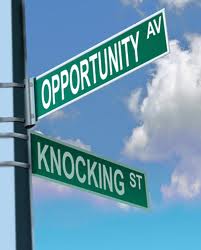One of my dear friend posted an interesting question of our Facebook Page
“If you’re forced to work with a pessimistic person who would complain about everything in her position but refuse to change a thing, this could probably bring you down. What can you do to stop this negative environment and stay positive?”
Hi Audrey,
It is a typical situation happening at work and it can happen in a relationship as well. It is probably fair to acknowledge we all have to experience it one day or another in our professional environment. It is understandable for a person working with a negative coworker or living with a pessimistic to feel drowning in negativity as well sometimes. There are many opportunities for improvement and if you want a positive change you may get it.
1- the person who desires the change and stays positive wants to ask what makes her/him so affected by this negative behavior.
2- when the situation arises the feelings and the emotions provoked needs to be identified, acknowledged and validated.
Identify and acknowledge the emotion: “I feel irritated because even though we reached our goals my boss has complained about the fact we could have done better”, “I feel upset because for my coworker it is never enough, I want to celebrate my great work but I can’t with this pessimism”, “I feel down because my boss is always complaining about our results and not recognizing our efforts”
Validate: In any of this situation comfort you by recognizing that these feelings are exactly what they should be in these circumstances. Everybody would feel irritated or frustrated in any of the given situation when they happened. You are totally normal!
3- Now comes the time to detach oneself from the emotional stage and to rationalize the situation. Indeed, how much control do you have on this given situation?
How much do you think you can change a person? A)I certainly can /B) I don’t know/C) I can’t
How much does the situation worth your energy? A) A lot/B) A little/C) None
How much do you think you can change yourself and your attitude toward this situation? A) I certainly/ B) I don’t know / C) I can but I won’t
If 2 or more of your responses are C questions move to #4
If the responses are B or combination of A & B move to #4
If the responses are a combination of B & C or only C Stop here and ask yourself how much you really want the change and how much comfortable for you it may be to stay in this situation. It may be easier for now to blame the other for feeling drained and being down, it may be denial of your own negative energy or it may be wanting to keep this conflicting relationship for other reasons that may be explored.
4- A relationship has been established between “you” and the person with the negative attitude. Responding the same way over and over will make the situation remain the same and repeat itself over and over again.
What can you change in your response that may break the pattern?
Since the negative energy may drag you down, how much do you think your positive energy may impact the other person and lift him/her up?
How much would it cost you to have a conversation with this person and telling him or her how this negative environment MAKES YOU FEEL? (Incriminating and blaming the other will only aggravate the situation, expressing your emotions and how you feel will open a healthy dialogue). Indeed this person may not even notice that she/he is acting in such a negative way and since you have always tolerated the behavior, the individual may not think it impacts you.
Remember that most people are simply not aware of the kind of energy they put out there because they are focusing on themselves and don’t get real feedback which truly gives the opportunity to challenge oneself and its belief system.
“How much would you appreciate the feedback if you were this person?” may as well be an appropriate question to ask oneself.
I wish this will help the person to clear this draining energy in order to focus and to enjoy the realm of positive energy which fill you up!









 Why me? Why do I have to do this? Whose idea is it anyhow? How does this impact my life?
Why me? Why do I have to do this? Whose idea is it anyhow? How does this impact my life?




